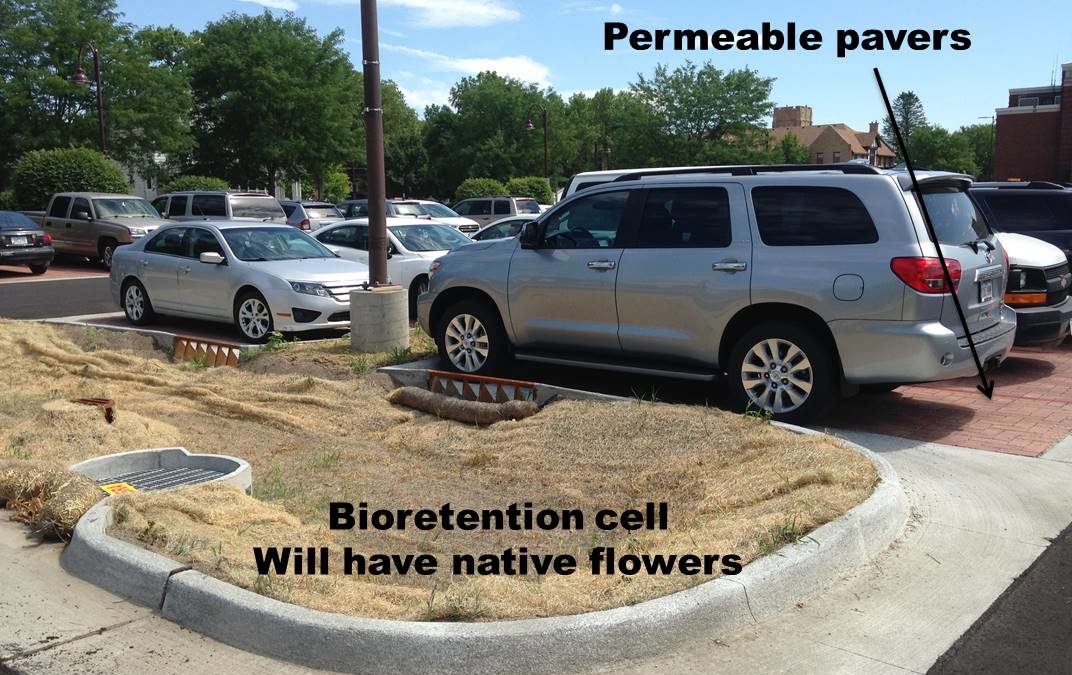
Upgrade your sewage treatment plant, get a free bioswale!
Does the State Revolving Fund (SRF) do infomercials for its Clean Water Loans? I think they should because SRF Sponsored Projects are a classic case of “buy-one-get-one-free.”
We usually focus on conservation efforts by farmers but today let’s give some credit to the municipal wastewater departments—they do a lot to keep our rivers clean. As a nation, we’ve generally been more successful in regulating and treating the pollutants coming out from sewage treatment plants and factories than we have been in dealing with the pollutants that wash off of farm fields, turf grass and parking lots. We’ve now reached a point where the water coming out of the local sewage treatment plant is cleaner in some respects than the water in the backyard creek. I’m not kidding: Ames Water and Pollution Control can’t exceed 126 E. coli colonies per 100mL in their treated effluent—E. coli levels in Squaw Creek for 2016 were eight times higher.
Repairing an aging sewer system or installing a UV disinfection system to meet permit requirements isn’t cheap. This year, the City of Gilbert will be borrowing $3.8 million from the State Revolving Fund (SRF) to upgrade its lagoons and the City of Ames will be borrowing $21 million to prevent inflows to its sanitary sewer system. With that necessary expense comes an additional opportunity to clean up Squaw Creek. A city can apply to do SRF Sponsored Project of up to 10% of the wastewater loan principal, and have the project cost offset by reduced interest rates. Eligible projects include “green infrastructure” in town, conservation practices on farmland in the watershed, or erosion control and ecological restoration along the stream.
Ames has done SRF Sponsored Projects before, so on Monday I joined staff from Gilbert, Fox Engineering, and IDALS to hear from Ames Stormwater Specialist Jake Moore and get some ideas for projects. Paved surfaces like parking lots can contribute to erosion, flooding, and water quality problems, because the rain that falls on them rushes via storm sewer to our waterways. Modern ordinances require that more stormwater be detained and treated on site, or allowed to soak into the ground rather than running off the surface. Ames rebuilt the city hall parking lot last year to absorb water. The parking stalls are permeable pavers. Up to 27 inches of stone underneath provides storage space for water after big storms to mitigate flooding. Compost amendment to the landscaped areas around the building increase soil permeability and promote healthy vegetation. The site was recently planted with the help of Ames High School students, so check back—over time the moisture-tolerant native plants in the bioswales should fill in and bloom, attracting butterflies.
Cool project, right? Prairie Rivers of Iowa is eager to partner with Gilbert, Ames, and other towns in the Squaw Creek and South Skunk watersheds to help facilitate water quality practices both in town and on farmland.


